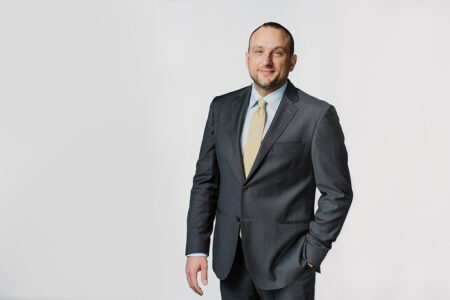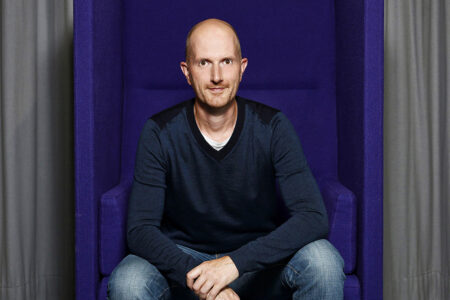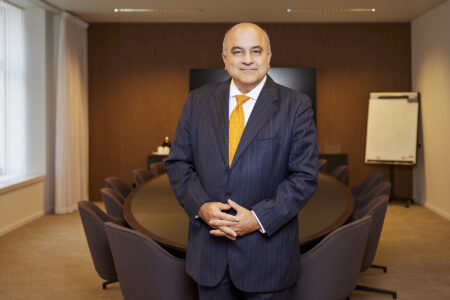With a fast-growing entrepreneurial community, Luxembourg is a rising star on the global startup scene. Strategic investments in a favorable environment as well as a dynamic and open-minded business sector attract promising young companies from near and far.
 Let’s be honest – if we look at absolute figures, the Luxembourg start-up hub is still fairly small. “However, if we consider the number of start-ups relative to the population, Luxembourg ranks among the top EU countries,” Jonas Mercier, Startup Luxembourg Coordinator at Luxinnovation, points out. “The curve for start-up creations points straight upwards. Almost three quarters of our startups are less than five years old.”
Let’s be honest – if we look at absolute figures, the Luxembourg start-up hub is still fairly small. “However, if we consider the number of start-ups relative to the population, Luxembourg ranks among the top EU countries,” Jonas Mercier, Startup Luxembourg Coordinator at Luxinnovation, points out. “The curve for start-up creations points straight upwards. Almost three quarters of our startups are less than five years old.”
The curve for startup creations points straight upwards.
One reason for this is a clear switch of the government agenda. “Since 2013, we have really focused on developing the startup ecosystem,” says Michele Gallo, Director Digital Technologies and Startups at the Ministry of the Economy. “We have built a whole pipeline of tools that can help start-ups from their early days all the way to acceleration and scale-up.”
Start-up support suite
 R&D and innovation subsidies, which can support companies with developing the first version of their innovative products, were complemented in 2016 with acceleration programme Fit 4 Start that offers startups intense coaching and equity-free funding that can go up to €150,000. “Fit 4 Start put Luxembourg in the international spotlight, and has attracted more than 2,000 applications from over 90 countries,” says Mr Mercier.
R&D and innovation subsidies, which can support companies with developing the first version of their innovative products, were complemented in 2016 with acceleration programme Fit 4 Start that offers startups intense coaching and equity-free funding that can go up to €150,000. “Fit 4 Start put Luxembourg in the international spotlight, and has attracted more than 2,000 applications from over 90 countries,” says Mr Mercier.
In addition to subsidies, Luxembourg has invested in several investment funds.
As a next step, the Young Innovative Enterprise support scheme can provide essential co-funding for startups to develop their sales and go international. “Financing is obviously key,” says Mr Gallo. “In addition to subsidies, Luxembourg has invested in several investment funds, including the Digital Tech Fund, the space-oriented Orbital Ventures and the Luxembourg Future Fund.”
International deal flow
 As the CEO of Luxembourg’s first tech incubator, Technoport, Diego De Biasio has been watching the development of the startup community from the front row for over two decades. “Our deal flow has increased and diversified radically over the years,” he says. “In the beginning, most entrepreneurs came from our neighbouring countries, but today we receive a high number of applications from further away. Luxembourg is clearly on the map in the US, Asia and other European countries. The number of local entrepreneurs has also increased a lot.” He points out that the increasing number of startups that have succeeded internationally – Talkwalker, e-Xstream, Tadaweb, RCDevs, or Salonkee and Doctena, for example – inspire others to follow their path.
As the CEO of Luxembourg’s first tech incubator, Technoport, Diego De Biasio has been watching the development of the startup community from the front row for over two decades. “Our deal flow has increased and diversified radically over the years,” he says. “In the beginning, most entrepreneurs came from our neighbouring countries, but today we receive a high number of applications from further away. Luxembourg is clearly on the map in the US, Asia and other European countries. The number of local entrepreneurs has also increased a lot.” He points out that the increasing number of startups that have succeeded internationally – Talkwalker, e-Xstream, Tadaweb, RCDevs, or Salonkee and Doctena, for example – inspire others to follow their path.
Technoport has also been joined by a number of other incubators and accelerators, of which many are private or public-private initiatives: the Luxembourg House of Financial Technologies (LHoFT), the Chamber of Commerce’s House of Startups, Paul Wurth Incub and Vodafone’s Tomorrow Street, to mention but a few. Private US accelerator gener8tor has also just opened its first European hub in Luxembourg.
Attracting the best startups
On the international level, Mr De Biasio thinks that Luxembourg has a strong position. “If we compare what we do here with other regions, we definitely don’t have to be shy. Just at the level of Technoport, we were able to make it into the European or world top 10 University Associated Business Incubator rankings done by independent organisations.”
If we compare what we do here with other regions, we definitely don’t have to be shy.
“Luxembourg’s assets include an excellent digital infrastructure, recently boosted by our business-oriented high performance computer, and our exceptionally international population,” Mr Gallo points out. “Startups can easily build very diverse teams, and diversity drives innovation. Communication ways are short, and it is easy to get quick answers both from public authorities and from corporate decision makers. Timing is key for startups, so this speeds up their development.”
The startup ecosystem is promoted internationally under the joint brand Startup Luxembourg, and highlighted at key international events and official economic missions. “We work to become further recognised at the international level and attract the best startups,” Mr Gallo concludes.
This article was originally published in Crossroads Magazine #4 - Spring 2022
Photos: Diego De Biasio (© Olivier Minaire), Michele Gallo (© Ministry of the Economy/Marion Dessard),
Jonas Mercier (© Luxinnovation/Marion Dessard)
Stay tuned!
Sign up now and receive the latest news about our ecosystem into your inbox.
You May Also Like
These Related Stories

Sienza Energy develops European HQ in Luxembourg
-1.png?width=450&height=225&name=Untitled%20design(4)-1.png)
Luxembourg ranks as the world’s most attractive environment for startups






